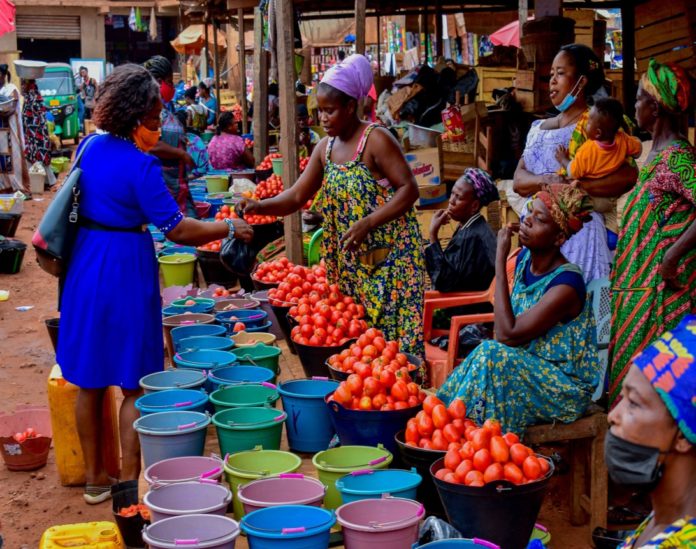“You can’t build a peaceful world on empty stomachs and human misery”, Larry Gbevlo-Lartey Esq quoted from Norman Ernest Borlaug asserted that food insecurity, especially when it is caused by a rise in food prices is rarely a direct or only cause of violent extremism.
According to him, food insecurity combined with other political or socio-economic factors could be the factor that determines whether and when violent conflict will erupt.
He said this when he was delivering his presentation on the theme “Food Security as a tool to combat violent extremism” at Legon Accra with the aim to provoke thought and discussion on food security as a tool for combating violent extremism.
Food Security exists when at all times, there is physical and economic access to sufficient, safe, and nutritious food that meets the dietary needs and preferences for an active and healthy life.
Given Maslow’s hierarchy of needs, the basic need is physiological that consists of food, water, shelter, and warmth. Moreover, according to the UNDP 1994 Human Development Report, food security is number one on the seven components of the human security list. These indicate that food is the most basic need in human existence.
World Bank and AU Data on Africa’s Food Security.
Presenting the food security index on World Bank data, Africa’s food import bill of $43 billion in 2019 is projected to increase to $110 billion in 2025. In 2020, more than 1 in 5 persons in Africa faced hunger and in 2021, 282 million Africans were undernourished; projected to be 350 million in 2050.
Presenting on the African Union food security index, the Maputo Declaration stated that in 2003 30% of the African population was chronically and severely undernourished. Again, the Malabo Declaration stated that in 2014, a significant proportion of the African population was still vulnerable to economic marginalization, hunger and malnutrition despite positive achievements registered. The question is, is there really a justification for hunger in Africa?
On Ghana.
In the Ghanaian context, the Finance Ministry reported that Ghana’s import of essential food commodities has reached $2 billion where rice, poultry, cooking oil, and sugar comprise a chunk of the imports.
Suggested Courses of Action of Food Security to Prevent Violent Extremism.
Appropriate interventions can transform the vicious cycle of food insecurity and violent extremism into a virtuous cycle of food security and national stability with a focus on:
• SDGs – Especially SDG 2, zero hunger by 2030.
• Protection and empowerment of vulnerable groups – (low-income earners) from higher food prices.
• Development of production strategies for self-sufficiency in Rice, Maize, Poultry, and Cooking oil.
• Address the issues of:
- Farmer – Herder conflicts.
- Galamsey and the pollution of water bodies.








